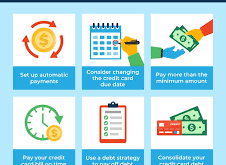First-Time Buyer Cards: Guide to Smart Credit Choices. First-time buyer cards are designed to help individuals new to credit build a strong financial foundation. These cards are tailored for those with little to no credit history, providing an excellent stepping stone into the world of personal finance. In this guide, we’ll cover everything you need to know about first-time buyer cards, their benefits, tips for using them wisely, and answers to frequently asked questions.
What Are First-Time Buyer Cards?
First-time buyer cards are credit cards created for individuals who are just beginning their credit journey. They often have:
- Lower Credit Limits: To minimize risk for issuers and encourage responsible usage.
- Simplified Approval Criteria: Making them accessible to those with limited or no credit history.
- Basic Features: Without the perks of premium cards, focusing instead on helping users establish credit.
These cards are ideal for young adults, students, or anyone looking to build their credit score from scratch.
Benefits of First-Time Buyer Cards
- Credit Building: Timely payments are reported to credit bureaus, helping you establish a positive credit history.
- Financial Discipline: Low credit limits encourage responsible spending habits.
- Access to Better Cards: A good payment record can help you qualify for higher-tier cards in the future.
- No or Low Fees: Many first-time cards come with minimal fees, making them affordable.
- Educational Resources: Some issuers provide tools and tips to educate users about credit management.
How to Choose the Best First-Time Buyer Card
- Check Annual Fees: Look for cards with low or no annual fees.
- Understand the Interest Rate (APR): A lower APR is ideal if you plan to carry a balance.
- Look for Rewards or Cash Back: Some cards offer simple rewards even for first-time users.
- Consider Approval Requirements: Choose a card designed for limited or no credit history.
- Explore Additional Features: Such as fraud protection, free credit score tracking, or no foreign transaction fees.
Tips for Using First-Time Buyer Cards Wisely
- Pay on Time: Set up reminders to ensure timely payments.
- Keep Balances Low: Avoid using more than 30% of your credit limit.
- Review Statements Regularly: Monitor transactions to spot unauthorized charges.
- Avoid Multiple Applications: Too many credit inquiries can lower your score.
- Use for Small Purchases: Pay off balances in full to avoid interest charges.
- Set a Budget: Treat your credit card like cash to avoid overspending.
- Understand Terms and Conditions: Read the fine print to know fees and penalties.
- Avoid Cash Advances: These often come with high fees and interest rates.
- Monitor Your Credit Score: Regularly check how your usage affects your credit.
- Upgrade When Ready: Transition to a card with better benefits once your credit improves.
10 Frequently Asked Questions About First-Time Buyer Cards
- What is a first-time buyer card? A credit card designed for individuals with no or limited credit history.
- Who qualifies for a first-time buyer card? Typically, those new to credit, such as students or young adults, qualify.
- Do these cards have rewards? Some offer basic rewards like cash back on purchases.
- What’s the typical credit limit? Credit limits are usually low, ranging from $200 to $1,000.
- Can I increase my credit limit? Yes, many issuers allow limit increases after consistent, responsible use.
- Will applying for a card affect my credit score? Yes, but the impact of a single inquiry is minimal and temporary.
- What happens if I miss a payment? Late payments may incur fees and negatively affect your credit score.
- Are secured cards better for first-time buyers? Secured cards require a deposit and are ideal for those with no credit or poor history.
- How long does it take to build credit with these cards? Significant improvement can take 6-12 months of consistent, responsible use.
- Can I have more than one first-time buyer card? While possible, it’s better to focus on managing one card effectively.
Conclusion
First-time buyer cards are an invaluable tool for establishing and growing your credit score. By understanding their benefits, choosing the right card, and practicing responsible habits, you can lay a strong financial foundation. Over time, as your credit history improves, you’ll gain access to better cards with enhanced features and benefits.
Remember, the key to success with first-time buyer cards lies in discipline and consistent financial management. Start small, stay informed, and watch your credit profile grow.
 credit.suarajatim.com
credit.suarajatim.com
